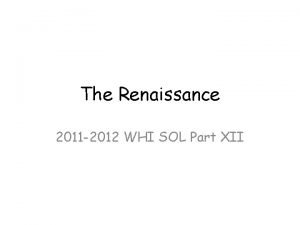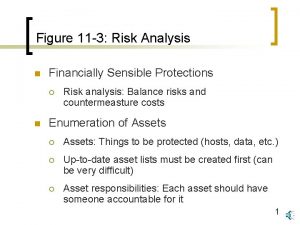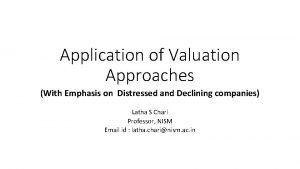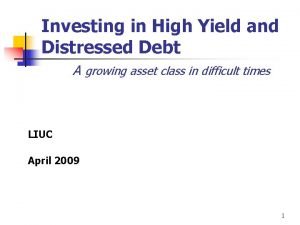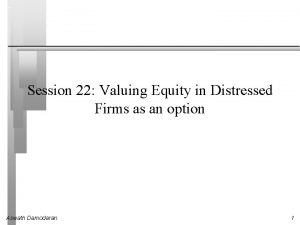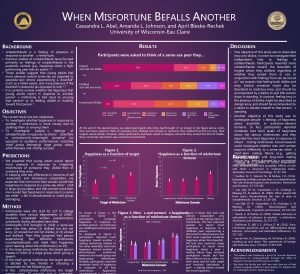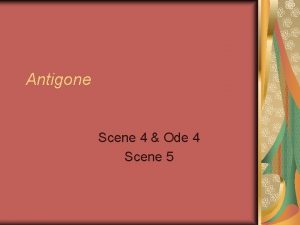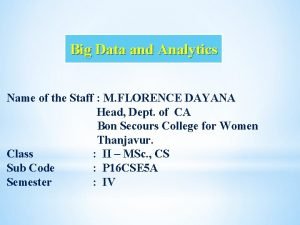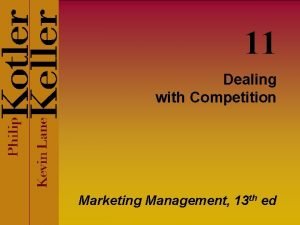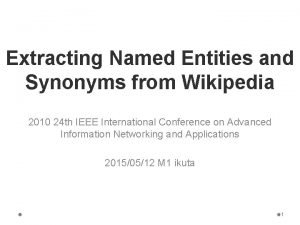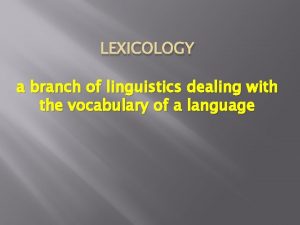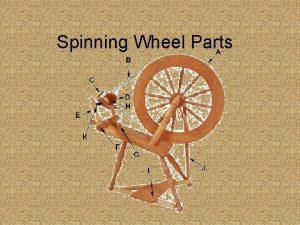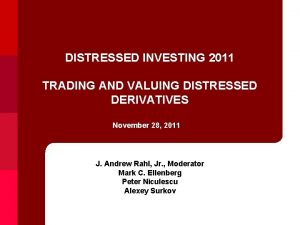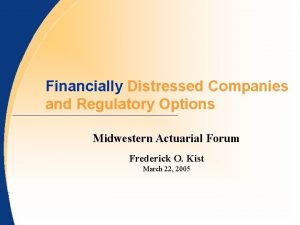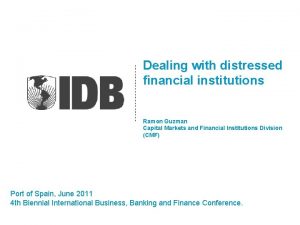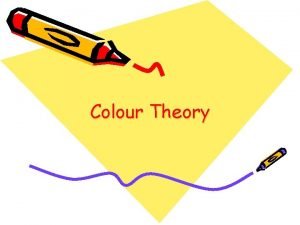Wheel of Misfortune Dealing with Financially Distressed Tech

























- Slides: 25

Wheel of Misfortune: Dealing with Financially Distressed Tech Companies Presented at the 2017 NAPABA National Convention by: Jane Kim, Keller & Benvenutti LLP Vincent J. Roldan, Ballon Stoll Bader & Nadler, P. C. Stephen T. Kong, Stradling Yocca Carlson & Rauth, P. C. Teri Stratton, Piper Jaffrey & Co. Lillian Park, Cisco Systems, Inc.

Types of intellectual property: Patents • A patent for an invention is the grant of a property right to the inventor, issued by the United States Patent and Trademark Office. See U. S. Constitution, Article I, Section 8. • Allows one to have monopoly power over invention (can exclude others from making, using, offering from sale, or selling the invention or importing it into the US). Can set the price and sell it for limited period of time. • Duration is up to 20 years.

Types of intellectual property: Patents • Three types of patents • Utility patent • Any new and useful process, machine, article of manufacture, or composition of matter, or any new and useful improvement thereof. • Design patent • New, original and ornamental design for an article of manufacture. • Plant patent • Distinct and new variety of plant that can be asexually reproduced.

Types of intellectual property: Patents • Need the following for patents: • Invention must involve patentable subject matter (formula, process, mechanism). • Novelty – unique, refines prior inventions in significant way. • Nonobvious – ordinary person wouldn’t come up with it; needs skill and uniqueness. • Disclose invention in a way that allows others to make/use it.

Types of intellectual property: Trademarks • Commercial identifier for goods. Usually consists of a word, name, or symbol that is used in trade to indicate the source and to distinguish from the goods of others. • Servicemarks are the same as trademarks, but are used for services rather than goods. • Can prevent others from using a confusingly similar mark. • For very famous marks, can prevent dilution. • Rights are based on use in the United States (although can apply for a federal trademark registration based on an intent to use) and last as long as the mark is being used. • Mark must be distinctive.

Types of intellectual property: Copyrights • Protects “original works of authorship fixed in any tangible medium of expression” See 17 U. S. C. § 102. • The right attaches when the work is fixed in a tangible form. • Includes literary works (including software), musical works, dramatic works, pantomimes, choreographic works, pictorial, graphic, and sculptural works, motion pictures, other audiovisual works, sound records, and architectural works. • Protects expression of ideas, not ideas themselves.

Types of intellectual property: Copyrights • Exclusions • • Does not protect functional or useful works. Does not protect government works. Does not protect titles, words, short phrases. Does not protect facts. • Gives the exclusive right to reproduce the work, to prepare derivative works, to distribute copies or phonorecords of the work, to perform the work publicly or display the work publicly. • Current term is 70 years after death of the author, or if a corporate author, 95 years from publication or 120 years from creation, whichever expires first.

Overview of Bankruptcy Code Section 365 • Assumption and rejection of executory contracts • The Bankruptcy Code authorizes the trustee in bankruptcy to assume or reject any executory contract subject to court approval. See 11 U. S. C. § 365(a). • This policy is grounded in the notion that a debtor should have the ability to abandon burdensome property and retain beneficial property. • Assumption requires “cure” of all defaults, including payment. • Rejection constitutes a breach of the contract immediately before the date of the bankruptcy unless the contract was assumed post-petition and thereafter rejected, in which case the rejection would be treated as a postpetition administrative claim. 11 U. S. C. Sec. 365(g). • Because the rejection is only deemed a breach, the parties’ substantive rights under the contract are not affected.

Overview of Bankruptcy Code Section 365 • Executory Contracts (continued) • Threshold matter: is the contract executory? • “Countryman” test: • An executory contract is “[a] contract under which the obligation of both the bankrupt and the other party to the contract are so far unperformed that the failure of either to complete performance would constitute a material breach excusing performance of the other. ” Prof. Vern Countryman, Executory Contracts in Bankruptcy: Part 1, 57 Minn. L. Rev. 439, 460 (1973). • Most courts have adopted the Countryman test. See, e. g. , In re Superior Toy & Mfg. Co. , Inc. , 78 F. 3 d 1169, 1172 n. 3 (7 th Cir. 1996); In re Streets & Beard Farm P’ship, 882 F. 2 d 233, 235 (7 th Cir. 1989); In re Bradlees Stores, Inc. , 2001 WL 1112308, at *6 (S. D. N. Y. Sept. 20, 2001) (collecting cases). • “Functional” approach: • Under the functional approach, a contract is executory if the determination would permit the debtor to reject the contract because it is burdensome or unfavorable. See, e. g. , In re La Electroncia, Inc. , 995 F. 2 d. 320, 322 n. 3 (1 st Cir. 1993) (collecting cases).

Overview of Bankruptcy Code Section 365 • Executory contracts (continued) • E. g. , in a license agreement, are there unperformed obligations on both sides to warrant treatment of the license as executory? • In re Exide Technologies, 607 F. 3 d 957 (3 d Cir. 2010) (court held that a perpetual, royalty-free, exclusive license subject to New York law was not executory, and therefore, could not be rejected). • In re Interstate Brands, 690 F. 3 d 1069 (8 th Cir. 2012) (opposite conclusion: a similar perpetual, royalty-free trademark license subject to Illinois law was executory and could be rejected). • Note that the mere obligation to pay royalties standing by itself may be insufficient to cause the contract to be deemed “executory. ” See Lubrizol Enters. , Inc. v. Richmond Metal Finishers, Inc. (In re: Richmond Metal Finishers, Inc. ), 756 F. 2 d 1043, 1045 (4 th Cir. 1985).

Overview of Bankruptcy Code Section 365 • Executory contracts (continued) • Examples of ongoing obligations of licensor and licensee. • On-going licensor obligations: • covenants not to sue for infringement; • duties to maintain the IP; • duties to protect against infringement that would impair the licensee’s rights • On-going licensee obligations: • agreement to use the IP in a specified manner; • territory restrictions; • reporting obligations.

Overview of Bankruptcy Code Section 365 • Procedure for assumption or rejection • Motion and a hearing • Business judgment rule • Most contracts, including IP licenses, can be assumed or rejected at any time before plan confirmation. 11 U. S. C. Sec. 365(d)(2).

Assumption and Assignment: Section 365(c) • Most executory contracts can be assumed and assigned without the consent of the counterparty (even if the contract contains an antiassignment provision). • However, section 365(c)(1) prohibits assumption or assignment without counterparty consent if: • Applicable law excuses the non-debtor counterparty from accepting performance or rendering performance to a party other than the debtor. • Courts have held generally that federal patent, copyright, and trademark law constitutes “applicable law” requiring pre-assignment consent. • There is a split in authority as to whether non-exclusive licenses may nevertheless be assumed (without assigning) without consent.

Rejection: Section 365(n) • Section 365(n) protections • Lubrizol Enters. , Inc. v. Richmond Metal Finishers, Inc. (In re Richmond Metal Finishers, Inc. ), 756 F. 2 d 1043, 1045 (4 th Cir. 1985) (permits a debtorfranchisor to reject franchise agreements with non-debtor franchisees merely upon a finding that the rejection met the “business judgment” test). • Enactment of Section 365(n) • This provision was adopted in an attempt to balance the bankruptcy policy of allowing debtors to reject burdensome contracts with the policy of intellectual property law favoring scientific and technological advancement. • Application of this provision to “intellectual property” as defined in the Bankruptcy Code: trade secrets and patents. See 11 U. S. C. § 101(35 A) • Definition of “intellectual property” excludes trademarks – why? Congress distinguished the active role of a trademark licensor-debtor and the more passive role of a licensor of patents and other intellectual property, as well as the direct impact of licensee’s actions on the value of the debtor’s property – the trademark.

Rejection: Section 365(n) • Rights of licensees under Section 365(n): In the event of rejection, the licensee has two options: • Treat the rejection as a termination of the license agreement and seek to recover damages for breach of contract. See 11 U. S. C. § 365(n)(1)(A), OR • Retain the rights under the license agreement as those rights existed immediately before the bankruptcy case was commenced, subject to the following conditions: • Licensee must make all “royalty” payments due under the contract for the duration of the contract period and for any period that the licensee could have extended the contract under applicable nonbankruptcy law; see 11 U. S. C. 365(n)(1)(B)(i)-(ii); and • Licensee must waive any right of set-off it may have under the contract; and any claims under section 503(b) of the Bankruptcy Code stemming from the performance of the contract. See 11 U. S. C. § 365(n)(2).

Rejection: Section 365(n) • If the licensee opts for the second option (retaining pre-bankruptcy rights), the trustee must: • To the extent provided in the contract or an agreement supplementary to the contract, provide to the licensee any intellectual property (including such embodiment) held by the trustee; and • Not interfere with the rights of the licensee as provided for in the contract or an agreement supplementary to the contract, including the right to obtain the intellectual property from another entity

Rejection: Section 365(n) • Limitations of 365(n): in the event of a licensor’s rejection, the licensee does not have: • The right to receive improvements, updates and/or support • The right to prosecution and maintenance of the underlying intellectual property • The right to enforcement and defense of claims • The right to indemnification • So-called “most favored nations” protection

Rejection: Section 365(n) • Sunbeam Products Inc. v. Chicago American Manufacturing LLC, 686 F. 3 d 372 (7 th Cir. 2012) (trademark licensee could continue to use a licensed trademark notwithstanding a bankruptcy trustee’s rejection of the license under section 365(a). • This decision runs counter to the longstanding and widely-held view that an executory trademark license is at significant risk of losing its license in the event of a licensor’s bankruptcy. • See also In re Tempnology LLC, 559 B. R. 809 (B. A. P. 1 st Cir. 2016) (adopting Sunbeam interpretation) • In re Quimoda AG, 462 B. R. 165 (Bankr. E. D. Va. 2011) (in the bankruptcy of a German entity, court finds that the failure to afford patent licensees an opportunity to elect to retain their rights under 365(n) would undermine fundamental U. S. policy, despite that such protections are not available under German insolvency law).

Section 365(n) and Section 363 Sales • Potential tension between 365(n) and Free and Clear sales under 363(f) • In a 363 sale, the debtor seeks bankruptcy court permission to sell assets outside of the ordinary course of business. • The debtor often uses a 363 sale to sell assets in a chapter 11 case rather than as part of a plan of reorganization. • The 363 sale often involves the sale of all or substantially all of a debtor’s business as a going concern. • One benefit of a 363 sale is the ability to sell assets “free and clear” of liens, claims, and interests. 11 U. S. C. Sec. 363(f) (imposing certain requirements).

Section 365(n) and Section 363 Sales • In Licensing by Paolo, Inc. v. Sinatra (In re Gucci), 126 F. 3 d 380 (2 d Cir. 1997), the Second Circuit held that rights to a trademark can be sold in a section 363 sale “free and clear” of the prior rights of licensees and sublicensees. • The Seventh Circuit in Future-Source LLC v. Reuters, 312 F. 3 d 281 (7 th Cir. 2002) held that the licensee’s failure to object to a proposed sale constituted consent, and consent of the interested holder is one condition under which an interest can be extinguished by a bankruptcy sale. • The court did not explicitly address section 365(n). • The Seventh Circuit in Precision Industries, Inc. v. Qualitech Steel SEQ, LLC, 327 F. 3 d 537 (7 th Cir. 2003) held that a section 363(f) sale of real property extinguished a lessee’s rights under section 365(h). • Section 365(h) is designed to protect real estate lessees in the same way that intellectual property licensees are protected under section 365(n).

Practical Considerations Practical considerations regarding drafting intellectual property license agreements: • License agreement must specifically contemplate the potential bankruptcy of the licensor. • Have the license expressly state that the parties want Section 365(n) protections if the licensor ends up in bankruptcy. • Specifically define the licensed intellectual property so it falls under Section 365(n) definition of IP. • Identify whether you want the contract to be considered executory, and insert or delete clauses depending on your intent (i. e. , licensor’s failure to perform continuing obligations constitutes material breach of license agreement excusing non-performance by licensee). • Consider combining all licenses (patents, copyrights, trade secrets on the one hand trademarks on the other) that can be protected under 365(n) into one document. • Court might be less likely to reject only one section of a license if the majority is protected by 365(n).

Practical Considerations • Payments, fees, and royalties • Structure payments to discourage rejection by the licensor in the first instance (i. e. , special termination fees, liquidated damages provisions) • Have license agreement break out royalty payments that licensee has to pay to licensor in situation where licensee exercises its right to retain the license • Separate royalty payments made to use the IP from payments for other services or future services (or, alternatively, have agreement provide for reduction in royalty payments if licensor fails to maintain or support the IP) • Reason is to prevent licensee from having to pay for services no longer performed by the licensor debtor

Practical Considerations • Security interest • Consider including a security interest in the licensed IP in case licensor rejects the contract. • Licensee would then be entitled to full value of its collateral. • Turns a general unsecured claim into a secured claim, improving licensee’s chance of recovery. • Make sure that security interest is perfected – best practice for patents and trademarks is to file a UCC-1 AND in the USPTO. • Be mindful of 90 -day preference period in perfecting security interest if done after the fact. • Ensure that license agreement expressly includes provision about delivery of or access to source code, and maintenance rights for the source code, which will be helpful in the case of the licensee opting to retain its rights under the agreement.

Practical Considerations • Source code escrow agreements • Purpose is to have a complete copy of the source code that is the subject of the license agreement. • Source code would be placed in the hands of an independent third party (escrow agent) for safekeeping. • Once licensor files for bankruptcy, licensee is entitled to receive a copy of the source code. • Ensure that other information needed to maintain the source code are also deposited into the escrow account, including development manuals, training materials, software libraries, and the like. • Allocate responsibility for costs of escrow account. • Negotiate how often escrow gets updated material (ideally, all new versions or the most current version should be in the escrow account). • Ensure that the conditions for releasing the source code explicitly includes bankruptcy. • Typical negotiation points: specific release conditions, what happens in dispute as to whether release condition has occurred and scope of license

Practical Considerations • After a counterparty files a bankruptcy: • Get in touch quickly with counterparty. • Find out about improving terms – if there’s a termination at will right, debtor will often offer improved payment terms, even COD or payment in advance. • Monitor bankruptcy – lots of legal paper, but pay attention. • Make sure contact person, address are up to date at counterparty and in debtor’s schedules. • Look out for asset sale notices, proof of claim bar date, contract rejections, assumption and assignment, and plan and disclosure statement. • File a claim on time – late-filed claims are rarely allowed. • Consider whether to appear and/or serve on Official Creditors’ Committee.
 Tricky's wheel of misfortune
Tricky's wheel of misfortune Where were the renaissance
Where were the renaissance Financially sensible
Financially sensible Valuing distressed and declining companies
Valuing distressed and declining companies High yield vs distressed debt
High yield vs distressed debt Valuing distressed companies
Valuing distressed companies High tech assistive technology
High tech assistive technology Misfortune of roslinda awang
Misfortune of roslinda awang Misfortune befalls
Misfortune befalls Who does antigone blame for her fate
Who does antigone blame for her fate Parts of sewing machine under the bed
Parts of sewing machine under the bed Tire wheel and wheel bearing fundamentals
Tire wheel and wheel bearing fundamentals Chapter 73 tire wheel and wheel bearing fundamentals
Chapter 73 tire wheel and wheel bearing fundamentals The branch of zoology dealing with insects
The branch of zoology dealing with insects Dealing with unstructured data
Dealing with unstructured data Chapter 5 lesson 1 dealing with anxiety and depression
Chapter 5 lesson 1 dealing with anxiety and depression A nation's overall plan for dealing
A nation's overall plan for dealing Dealing with unstructured data
Dealing with unstructured data Dealing successfully with difficult changes in your life
Dealing successfully with difficult changes in your life How do marketers identify primary competitors
How do marketers identify primary competitors Focuses synoynm
Focuses synoynm The branch of zoology dealing with insects
The branch of zoology dealing with insects Aegisoft
Aegisoft Dealing with competition marketing management
Dealing with competition marketing management Difficult volunteers
Difficult volunteers Assimilation linguistics
Assimilation linguistics

